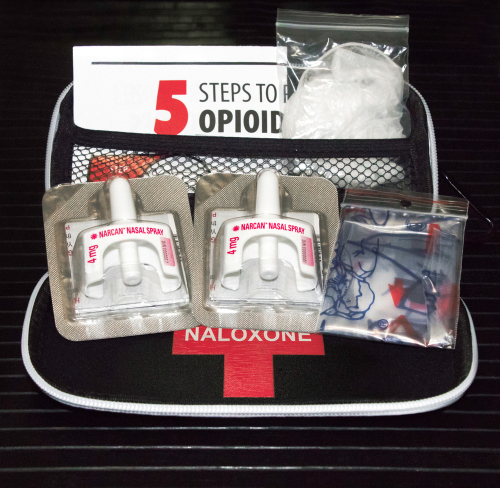
A South Carolina law that went into effect Jan. 1 requires emergency rooms and other healthcare facilities to report to the state health department each time an opioid antidote like naloxone is administered to reverse the effects of an opioid overdose.
The law aims to help the state get a bigger picture of opioid misuse in South Carolina, according to the state Department of Health and Environmental Control (DHEC), which reported December 2020 data showing that since the start of the COVID-19 pandemic, there has been a 49-percent increase in suspected opioid overdoses and first responder naloxone administrations statewide compared to December 2019.
The situation is so bad in Lancaster, S.C., for example, that town officials recently handed out holiday gift bags to whoever needed them containing naloxone, commonly known by its brand name Narcan, which is a nasal spray that can help stop an opioid overdose. Overall, Lancaster County last year experienced a tripling of caseloads for opioid addiction, ranking it as one of the hardest hit areas in South Carolina, according to Lancaster County Counseling Services.
The DHEC also reported that South Carolina firefighters reached a milestone when the number of naloxone administrations for suspected opioid overdoses hit 200 as of Oct. 21, 2020.
The state’s situation mirrors what’s happening across the United States.
The Centers for Disease Control and Prevention (CDC) on Dec. 17 issued a health advisory to alert public health departments, healthcare professionals, first responders, harm reduction organizations, laboratories, medical examiners, and coroners to sharp increases in drug overdose deaths across the country, primarily driven by a significant rise in overdose deaths involving synthetic opioids, such as illicitly manufactured fentanyl.
“Approximately 81,230 drug overdose deaths occurred in the United States in the 12 months ending in May 2020,” according to the CDC health advisory. “This represents a worsening of the drug overdose epidemic in the United States and is the largest number of drug overdoses for a 12-month period ever recorded.”
The CDC also warned about “a concerning acceleration” in drug overdose deaths coinciding with the implementation of widespread mitigation measures for the COVID-19 pandemic, which has further isolated many Americans and contributed to increased depression, drug and alcohol misuse, and other challenges.
Among several recommendations, the CDC called for expanding the provision and use of naloxone and overdose prevention education based on the needs and characteristics of each community, according to its advisory.
However, prior to the CDC alert, South Carolina legislators, like many state lawmakers across the country, already had started efforts to help turn around the worsening opioid overdose situation in their communities.
In January 2019, the House of the 2019-2020 South Carolina General Assembly introduced the bill now in effect that requires a hospital emergency department or other healthcare facility — once the supervising physician diagnoses a patient as having experienced an opioid overdose — to report specific information to the DHEC’s Bureau of Drug Control regarding the opioid antidote administered for inclusion in the prescription monitoring program, according to the text of the bill.
The Senate introduced its version in April 2019 and after being amended, the General Assembly passed the bill on May 9, 2019. The governor signed it into law on May 16, 2019 and it took effect on Jan. 1, requiring that DHEC collect the overdose antidote administration information for the state’s prescription monitoring program.
Healthcare facilities must include details in their reported information that includes the date an antidote was administered, as well as the name, address, and date of birth of the person who received the opioid antidote, according to the bill’s text.
And while DHEC had been tracking antidote administrations from some law enforcement and firefighters, all first responders now must submit this data, which DHEC said will provide it and the South Carolina Department of Alcohol and Other Drug Abuse Services (DAODAS) with up-to-the-minute details on statewide opioid overdose trends.
The law also permits medical doctors to access the data and use it to determine whether a patient needs treatment for an opioid use disorder, according to the bill.
“We want to keep people breathing. We want to keep people alive,” DAODAS Director Sara Goldsby told local Channel 7 News TV station WSPA on Jan. 1. “That gives them a chance to get to treatment and ultimately recovery.”




